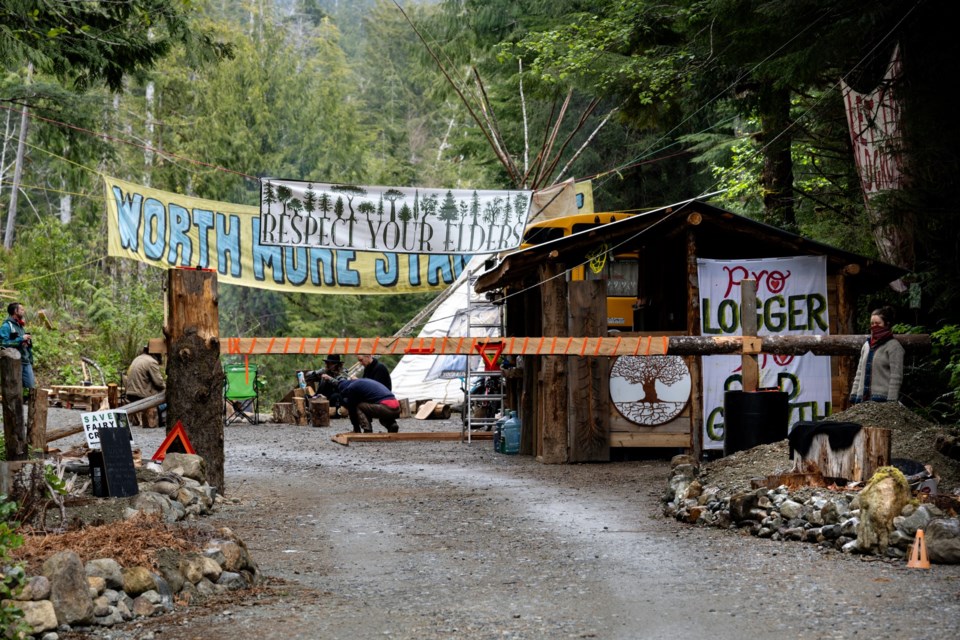BC’s forests minister has dropped an enormously complex new bill into the legislature that, when you boil it down, might simply be the useful tool government needs to get out of the intractable mess of never-ending old growth logging protests at Fairy Creek.
The new legislation measures more than 160 pages, filled with dense descriptions of forestry terms, tenures, harvesting rights definitions and formulas.
But here’s what it really does: It allows the B.C. government to take the logging rights from existing companies, and turn them over to local First Nations.
How and when this will all happen will be up to cabinet.
That means the minister of the day, of whatever political bent, will get to set the “special purpose areas” of forests, which are stripped from a company and given to locals.
There are three lenses from which to examine this.
The first is that it will help the province solve the year-long protest at Fairy Creek, on southern Vancouver Island, the single largest act of civil disobedience in Canadian history and just so happens to be occurring in Premier John Horgan’s riding.
It’s deeply embarrassing to the premier and the government that more than 1,168 people have been arrested fighting old growth logging at the site, and the province is at the point now of willing to do almost anything to make the political headache go away.
Some of Fairy Creek is already deferred to protect against old growth logging. But other areas in what’s known as TFL 47 continue to be logged by company Teal Jones.
The new bill, once passed, sets out an easy solution for government - designate the larger Fairy Creek area harvesting rights a special area, then turn it over to the Pacheedaht First Nation, which has demanded multiple times the protesters leave its territory.
The forests ministry says one stated purpose of the change is to “support reconciliation or other objectives” and turning over a contentious area of protest to local First Nations so they can steward their traditional territories would be an act of reconciliation the government could trumpet.
The move would be celebrated by environmental groups – not without irony, because many in the Pacheedaht nation are supportive of logging and partnering with Teal Jones to sustainably harvest the areas. So logging might actually continue, even under the change. But it would be driven by First Nations, and essentially immune to environmental criticism.
The move, if done in Fairy Creek, could be repeated in some of the other 2.6 million hectares of forests BC recently earmarked for protection. The deferrals that currently protect them will be temporary (once implemented), but the long-term solution to take the logging rights away from companies in those areas is held within this bill.
The second lens from which to view the change is Premier John Horgan’s longstanding anger at traditional forestry companies.
Most of BC’s Crown timber harvesting rights are held by large forest companies; fewer than 10 companies hold more than half of the allowable cut.
Horgan has frequently criticized the major players for not being good stewards of B.C.’s forests, being preoccupied by shipping out raw logs and for investing their profits in other provinces and U.S. states instead of innovating in local mills and factories.
When Western Forest Products, which controls most of Vancouver Island’s harvesting rights, went on strike in 2020, Horgan did not hold back that he thought the “extremely powerful private sector company” and its “extraordinary access to public lands” needed to be cut down to size.
“Western Forest Products has been given enormous benefits by the former government and none of those benefits flowed to the workers, none of those benefits flow to the communities where they operate,” he said publicly at the time.
“The notion of social licence is being eroded.”
From that perspective, the new legislation accomplishes something Horgan has long wanted to do - take on the major forestry companies and redistribute their ironclad grip on Crown forestry.
The third and final perspective on the new forestry bill is perhaps the most simple: control.
It gives the political minister of the day the direct ability to decide whether compensation is paid, and if so how much, as well as the various metrics and figures used in the formulas that might set that compensation.
That provides a pretty big advantage to a premier and government intent on taking on the industry’s major companies. And it will make it - perhaps - less costly to the public purse to chop away at their hold on the Crown timber rights over time.
Forests Minister Katrine Conroy said there’s no clear estimate on how much land the province will designate as special zones and strip away from companies once the bill is passed. That seems unlikely. This bill fits into a long plan by this government. It knows exactly what it’s doing, even if it’s not yet ready to reveal all the details.
Rob Shaw has spent more than 13 years covering BC politics, now reporting for CHEK News and writing for The Orca. He is the co-author of the national best-selling book A Matter of Confidence, and a regular guest on CBC Radio.



